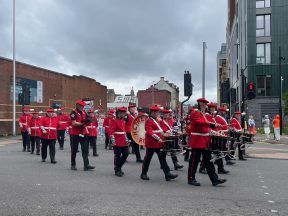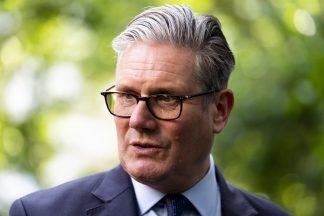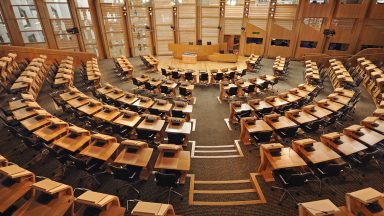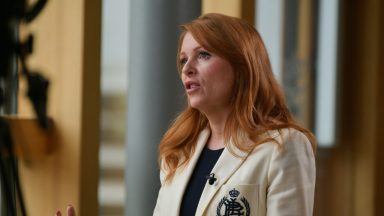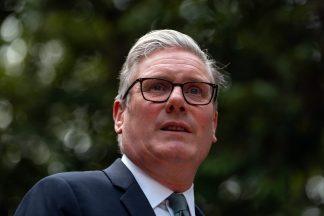The Conservative MPs in the chamber liked Jeremy Hunt’s autumn statement. In fact, they liked it a lot.
The Chancellor maxed out the fiscal headroom afforded to the Treasury as a result of higher tax receipts, lower borrowing and a rosier forecast position on the national debt, even if it remains eye wateringly high.
Forget the blizzard of statistics that accompanied the statement. There are a number of key points to make.
First, this was a nod to the economy but a bigger nod to the politics or more accurately to the perilous electoral health of the government.
The headline cut in national insurance – to be introduced in January – will make someone on the average salary £450 a year better off. Cutting it from 12% to 10% is a larger cut than forecast and was a clear demonstration that those on lower incomes came uppermost in his mind.
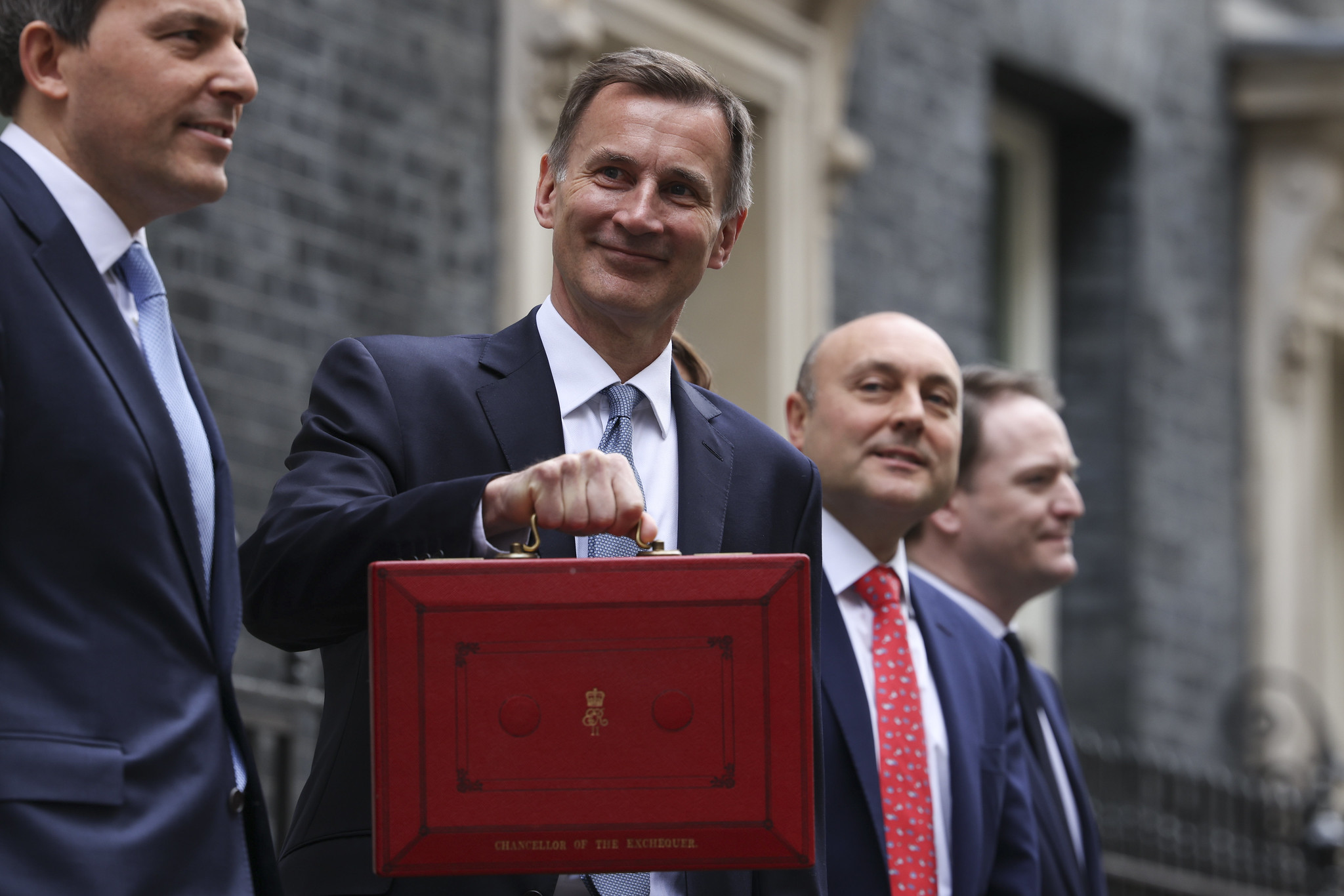 Downing Street
Downing StreetSince Holyrood has no say over national insurance, all workers in Scotland will benefit directly from this announcement.
And for the self-employed, there was lower Class 4 national insurance contributions with Class 2 abolished altogether.
And the policy that gives companies significant tax relief when making investments is to become permanent having first been introduced by Rishi Sunak a few years ago.
Although the politics of this look clever, some Tories will worry it does not go far enough.
The issue is “fiscal drag”, a phenomenon whereby employees find themselves paying more in tax because their wages are rising but the level of income at which rates become payable is frozen.
Fiscal drag is the tax increase of choice for both the Scottish and the UK Government’s and Hunt said nothing about when allowances will start to rise.
As a result, some whose wages are increasing will pay tax for the first time and some current basic rate taxpayers will be sucked into paying the higher rate.
It was rumoured he might increase the level at which the top rate becomes payable, but he didn’t opt to change this for taxpayers in England. This issue is devolved to the Scottish Parliament.
And there was nothing on cutting inheritance tax, a policy which many Tories believe has to change ahead of an election.
It was also rumoured that he might raise universal credit and other benefits by less than the CPI inflation figure in September.
That is the month that normally benchmarks the rise in benefit payments the following April. So, benefits will rise by 6.7%.
He also honoured the triple lock in full in a measure that will see the state pension rise by 8.5% next April and take the new state pension to £11,500 per year.
And the national minimum wage goes up by just over one pound per hour to £11.44.
What we didn’t get this week was a breakdown in departmental spending going forward but he did say that growth in public spending would in the future be lower than growth in the economy. That is a code for cuts particularly as the growth forecast next year envisages a near static economy.
One area that will be targeted for cuts is those in receipt of benefits who are long term unemployed but have no health issue or disability.
These people will need to take a mandatory work placement or lose their benefit.
This is the kind of stuff the Tory rank and file loves and it is meant to deal with the fact there are seven million people in the UK of working age who do not have a job, despite the fact there are one million vacancies.
With changes likely in the way people are assessed on being fit for work, it is clear a key Tory pledge at the election will be a war on the alleged work-shy.
These measures will cheer the Tories but will they equally cheer the voting public?
The tax cuts are significant but not significant enough to deal with higher rents and mortgage payments. The tax cuts pale by comparison.
And these moves might embolden the Bank of England to keep interests rates high for the whole of next year, making the election backdrop an extremely challenging one for the Tories.
What the autumn statement does is gives the Government a narrative on tax cutting ahead of the election. It is where they would want to be.
But the crude reality is that they will mitigate, not solve the cost of living crisis.
A further reality is that the tax take will still be historically high so long as tax allowances are frozen for another five years.
The mirror might say tax cuts, but the smoke clouds the message with a reminder of an uncomfortable reality; fiscal drag is the order of not only today, but every day until April 2028.
Follow STV News on WhatsApp
Scan the QR code on your mobile device for all the latest news from around the country


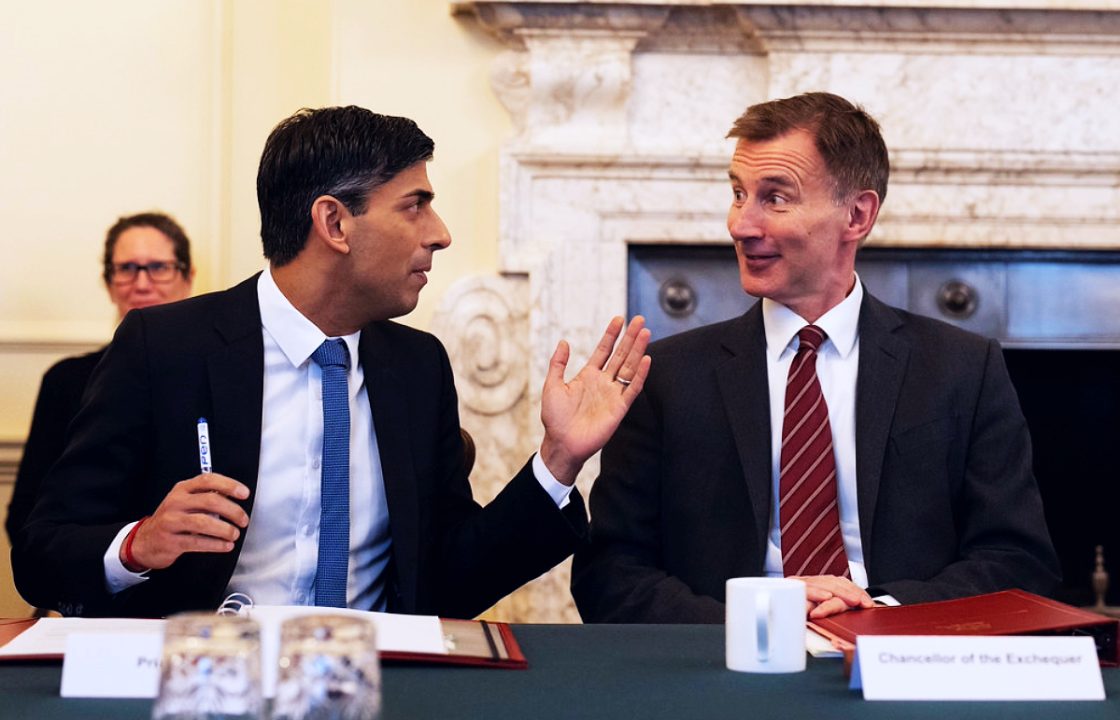 Simon Dawson / No 10 Downing Street
Simon Dawson / No 10 Downing Street
